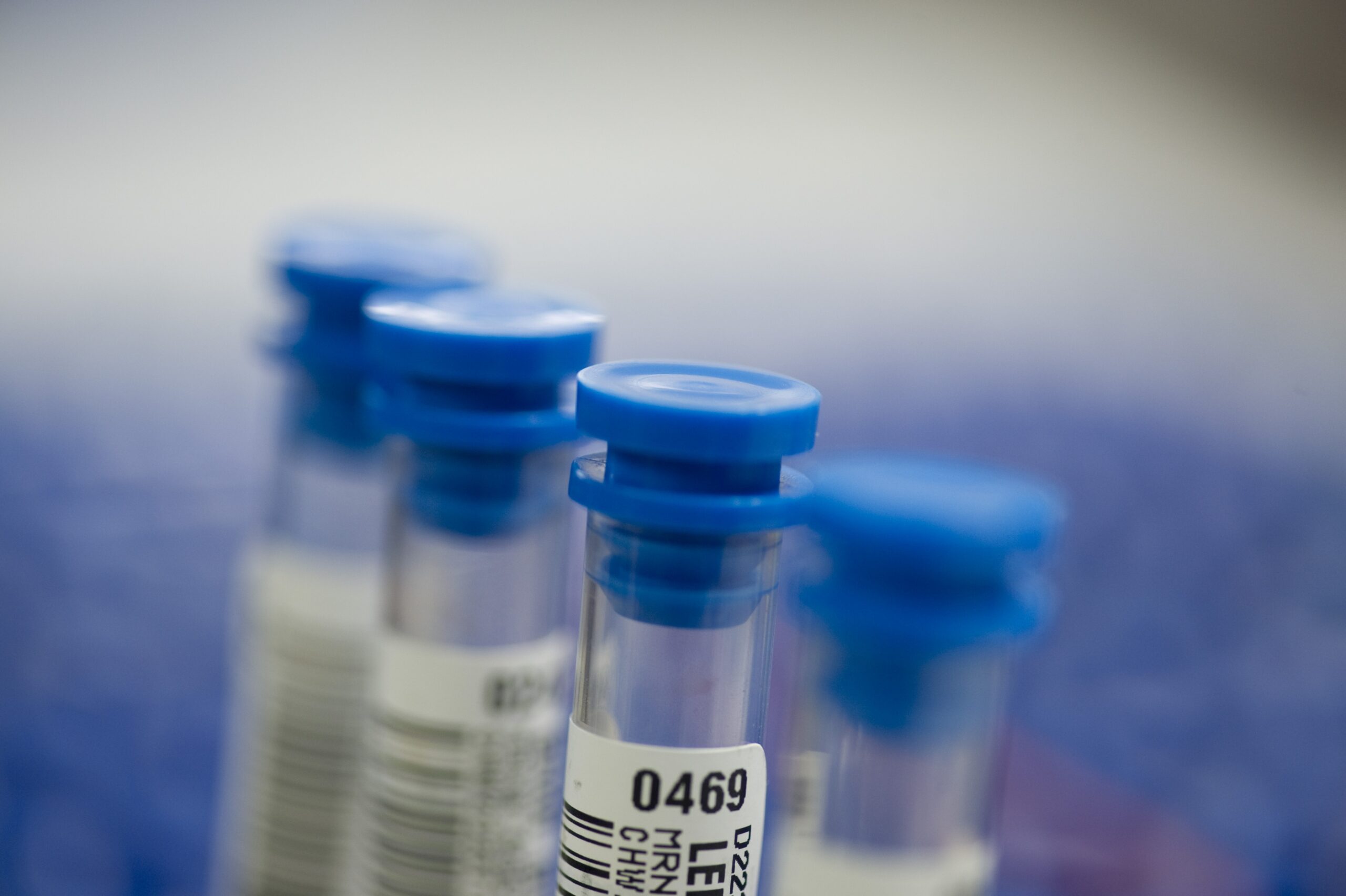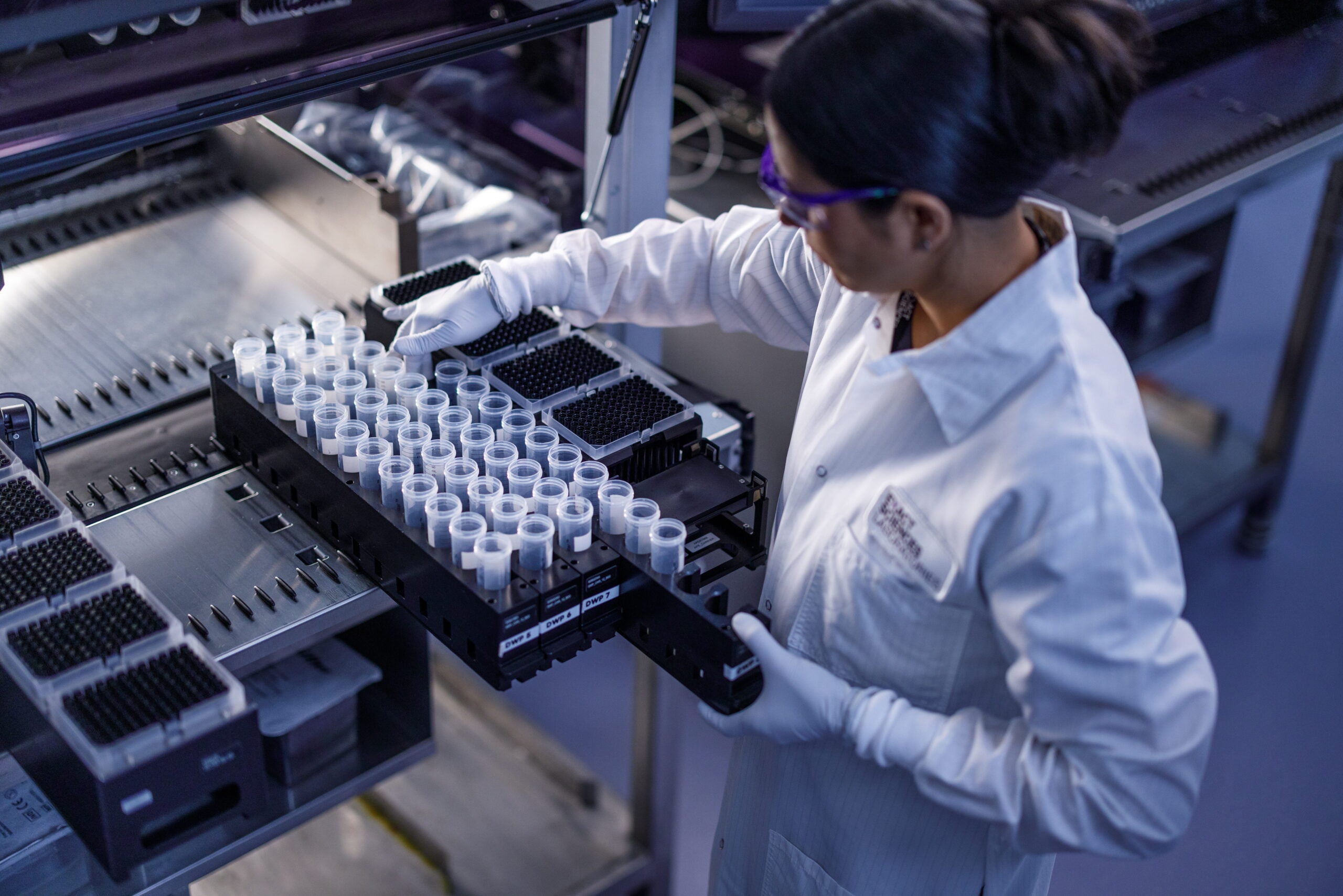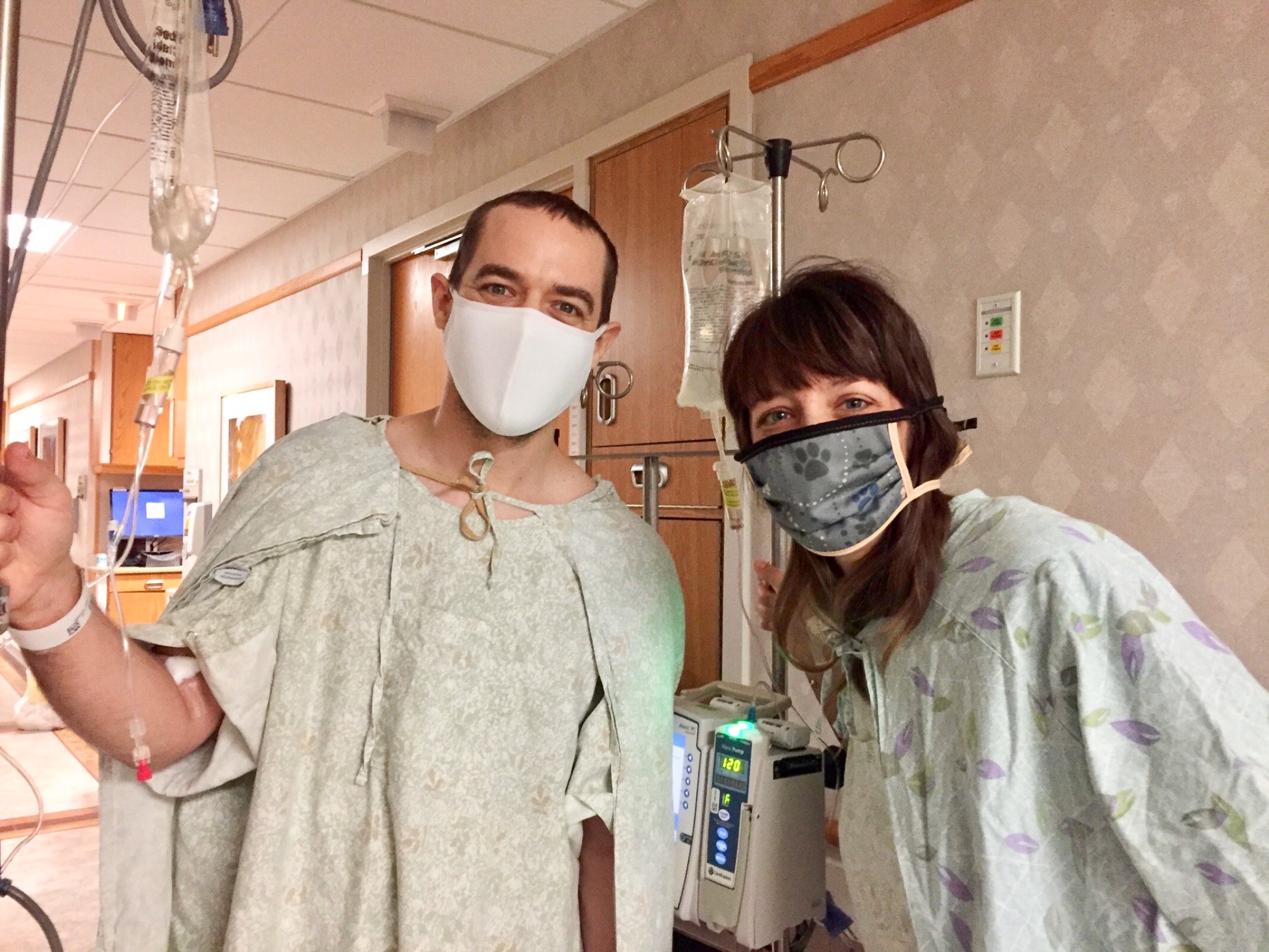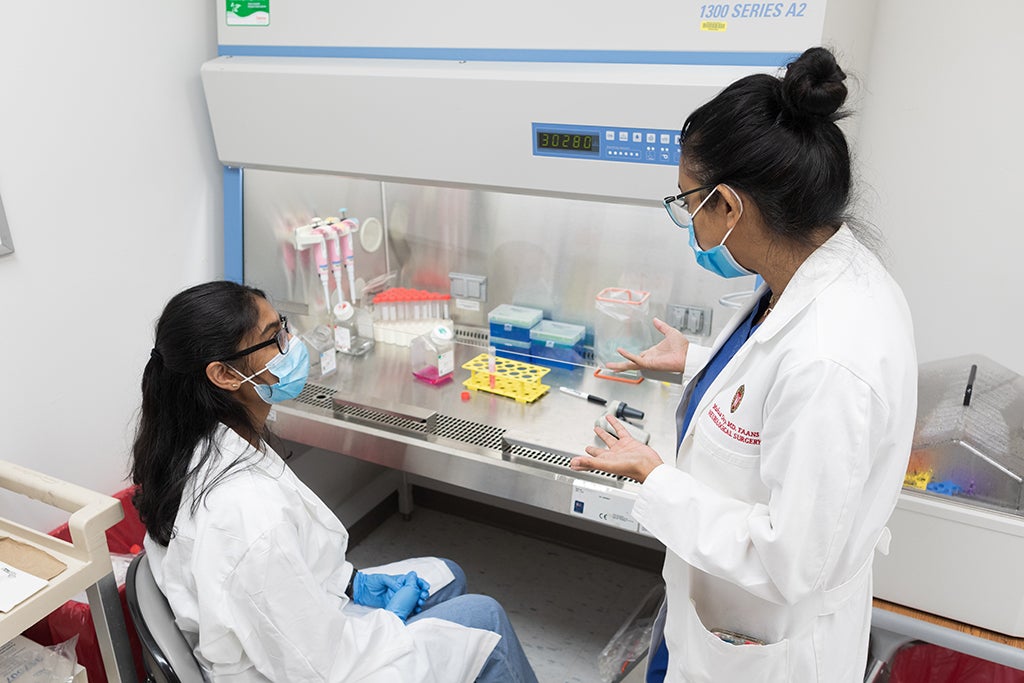Researchers at the University of Wisconsin-Madison have developed a new method for screening the effectiveness of drugs for some cancers.
Leukemia is a type of blood cancer, caused when abnormal bone marrow cells begin to multiply out of control. Though effective treatments for many different types of leukemia exist, UW researcher Igor Slukvin said many patients see the cancer return after they stop their medication.
He said leukemia is difficult to completely get rid of because it’s caused by drug resistant cancer stem cells. But overcoming that resistance could be on the horizon.
News with a little more humanity
WPR’s “Wisconsin Today” newsletter keeps you connected to the state you love without feeling overwhelmed. No paywall. No agenda. No corporate filter.
Up until now, all cancer stem cell drug testing has been done on mouse cells. Using a sample from a patient with chronic myeloid leukemia, Slukvin’s lab successfully created the first ever human leukemia stem cell model.
“We can use these cells to find drugs that can be used to eliminate cancer stem cells,” he said.
According to Slukvin, creating human cell models will also provide a better understanding of how different people are affected by the disease, opening the doors for more personalized treatment. Slukvin said the research falls in line with the White House’s Precision Medicine Initiative.
“Each person has unique genetic abnormalities in addition to the main mutation causing leukemia,” he said. “We can essentially capture the genetic abnormalities of a patient in a dish.”
Slukvin said he expects major steps will be made in finding new drugs to treat leukemia over the next 10 years.
Wisconsin Public Radio, © Copyright 2026, Board of Regents of the University of Wisconsin System and Wisconsin Educational Communications Board.







